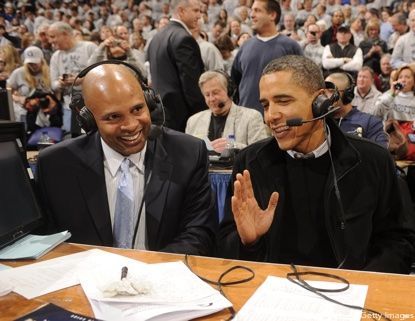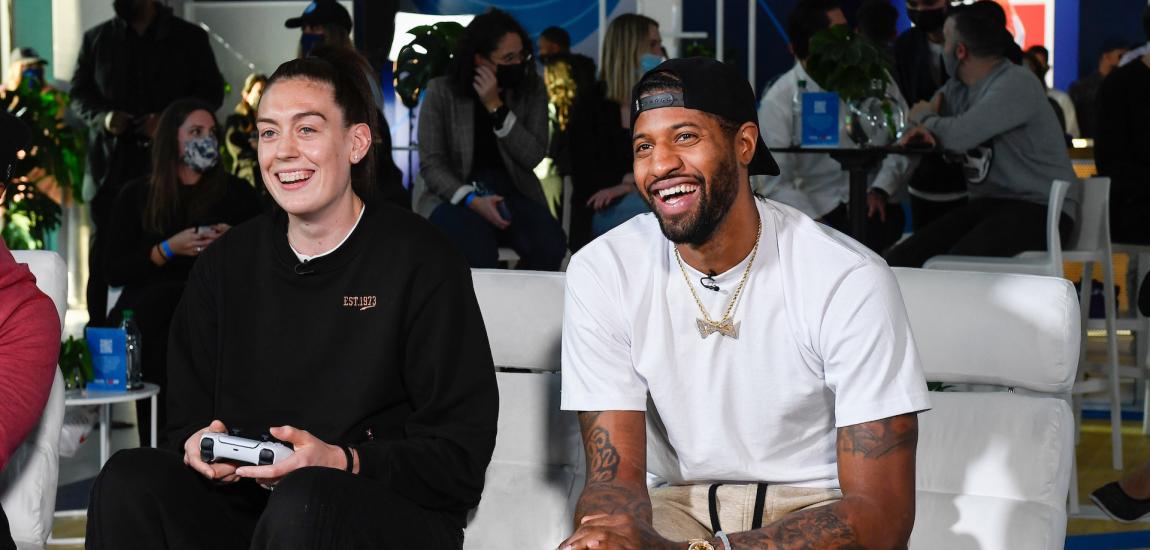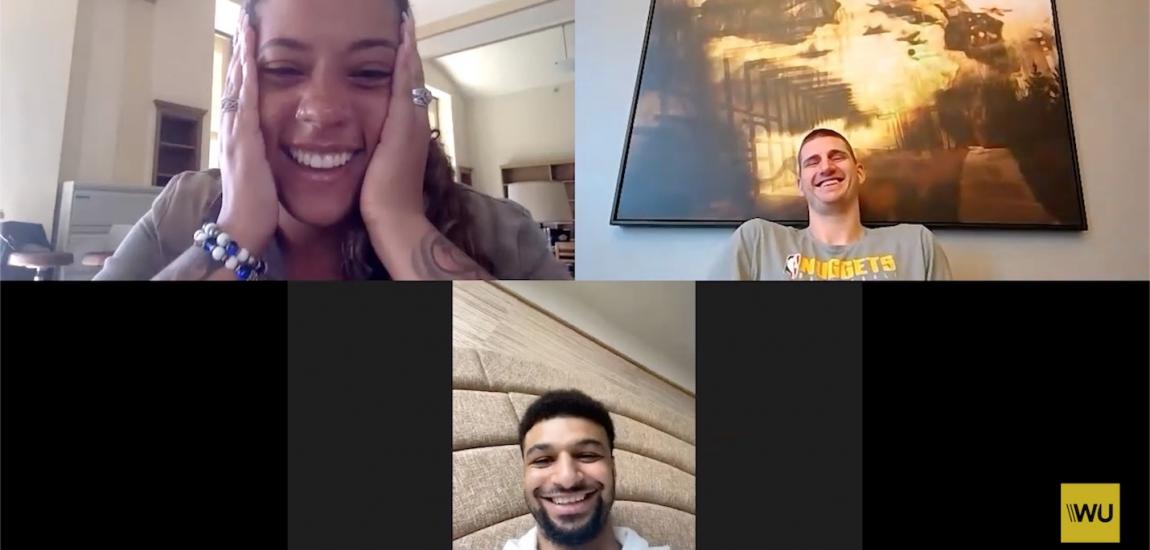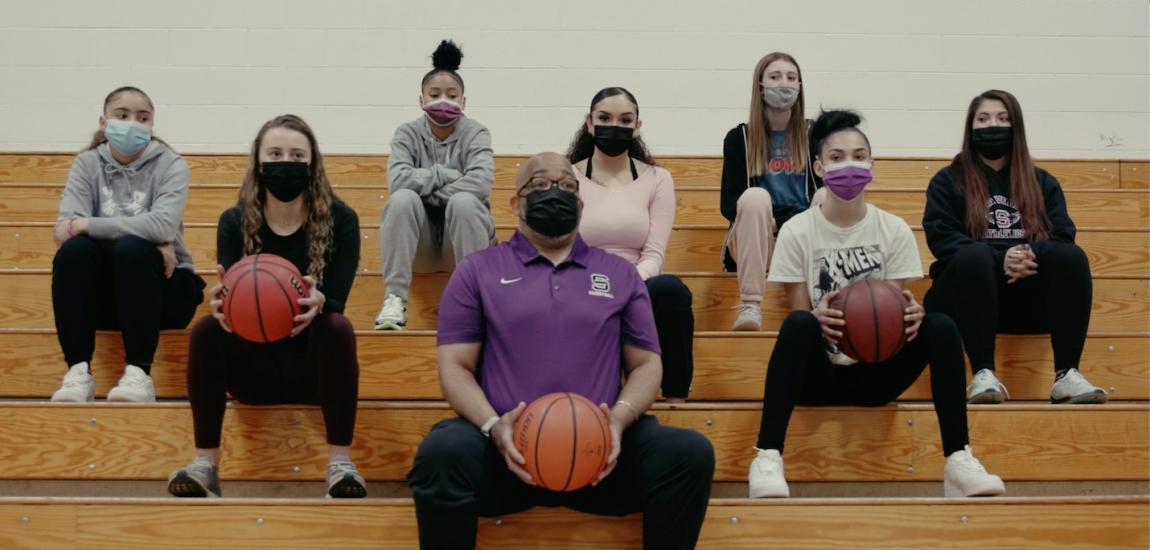For a while, Clark Kellogg had it all. After three successful years at Ohio State, culminating in a 1982 Big Ten MVP Award, Kellogg jumped to the pros. He was selected eighth overall in the NBA Draft by the Pacers and made the 1983 NBA All-Rookie First Team. Kellogg lined up a shoe deal with Converse.
Kellogg's 20.1 points and 10.6 rebounds as a rookie would be his peak. He played three full seasons before knee problems caught up with him. Kellogg made it through 19 games in 1985-86 and four in 1986-87 before calling it quits. At 25, his basketball career was over.
But Kellogg had a card to play that not every former collegiate athlete can relate to. He had a strong education. He came from St. Joseph's High School, a private school in Cleveland, and three years of Ohio State education. He began a broadcasting career with ESPN and CBS Sports. In 1996, Kellogg completed his degree from Ohio State, where he currently serves on the Board of Trustees.
"When you look at it comprehensively and historically, education is really the one enhancer in life," Kellogg says. "It is available to most. There's still the issue of accessibility and affordability, as we move into this current age, that's being addressed by institutions and needs to continued to be addressed."
Those who watched CBS' Elite Eight preview show last Sunday may recall Kellogg making similar statements. Kellogg, Kenny Smith and Charles Barkley spent a segment of the program discussing the academic fraud scandal hovering over the North Carolina athletic department. Long story short, former Tar Heels football players were linked to taking phony classes and having tutors do their work. In basketball, former player Rashad McCants has expressed similar sentiments, although no evidence against the basketball program has been reported.
The NCAA investigation of UNC is still open.
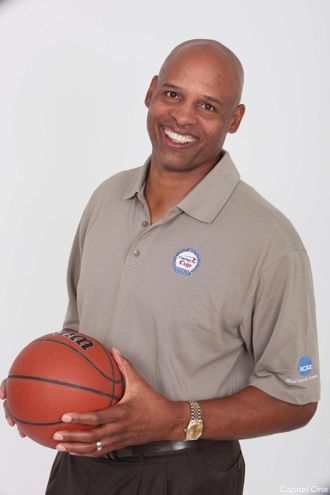
"It's a major reputation hit that causes embarrassment to anyone who holds North Carolina close to their heart and those of us who expect the most of our institutions of higher learning," Kellogg says. "I do think it should move into the background as we get closer to the games. It's being handled."
North Carolina's Final Four opponent, Syracuse, has dealt with its own recent scandal. After being found to have allowed academically-ineligible players to take the court for a decade, the Orange gave themselves a one-year postseason ban last season, and the NCAA stripped the program of 108 wins and eight scholarships (12 scholarships before an appeal).
Kellogg doesn't get hung up in the past. None of the current players on either team are believed to be part of either scandal, although Kellogg admits anyone associated with the university -- "student-athletes, alums, professors" -- are connected with the incidents by association.
Every institution, whether they are educating right or wrong, should be enriched by these two schools' follies.
"Athletics is part of the college experience," Kellogg says. "It's a way for many to get access to a college education based on their athletic gifts, but in many cases, we have forgotten the importance and value of the education and in some ways, the education for student-athletes has been diminished and water-downed.
"[Universities] accept students who may not be as well prepared for college as they should be, but that doesn't dismiss the responsibilities institutions have. Once you get kids on campus, no matter what their high school experience, they need to be helped with resources and commitment to get the education you provide them with. With athletics, it can sometimes be off the mark, which is troubling."
Kellogg was one of nine juniors chosen in the first two rounds of the 1982 NBA Draft (James Worthy, Terry Cummings and Dominique Wilkins were three of the others). All other selections were seniors. In Kellogg's days, even the best players were usually getting at least three years of an education. Today's rising basketball stars, in middle school, high school and college, see an NBA with stars who tend to leave school as underclassmen.
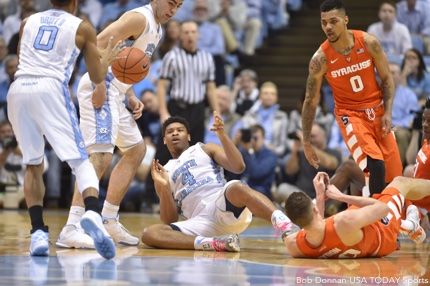
Respected individuals like Kellogg, Smith and Barkley can preach the value of education to a younger generation of student-athletes. More specifically, Kellogg values the role he can play in the education of African-Americans.
"We all have an opportunity based on a sphere of influence to try to impact others for good," Kellogg says. "Speaking from our own experiences and we also speak from what we see transpiring in front of us and around us, clearly the numbers indicate they are getting better, in terms of student-athletes of color graduating, but they still aren't where they should be for a lot of reasons. It's a not a simple issue, but a complex issue. But it's one that needs to be addressed.
"Institutions play a great part in that they have power and resources. How did you distribute those to see more African-American men that are in college are graduating, particularly the student-athletes because we know the vast majority are not going on to pro careers? We have a responsibility to not just athletes, but all students to give them an education that has value and has meaning and is useful, and if we are not fulfilling that responsibility, shame on us. I know most are, but it's something that resonates with me as an African-American male, as a college graduate, as one who's benefited from education and the doors it's opened for me. I want to see all folks experience change and improvement through education."
Kellogg says he and the Turner Sports crew (the primary NCAA Tournament channel is shifting from CBS to TBS for the Final Four) has discussed reverting to the education discussion during the weekend's broadcasts. But he admits there is not enough time on-air to dig thoroughly into the topic. On the lingering UNC scandal, Kellogg "hopes and thinks" it is an isolated case and not representative about what goes on at most athletic programs.
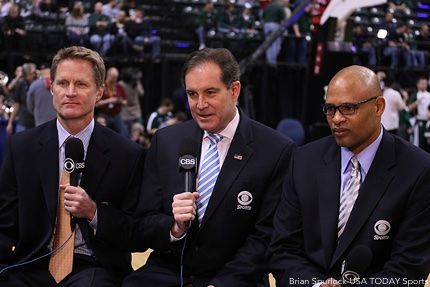
"There are a number of institutions that graduate athletes with meaningful degrees and really do create an environment where 'student-athlete' is not hypocritical," Kellogg says. "There are other places where it is hypocritical because there is not the investment or attention given to helping kids get meaningful degrees. Those institutions are small and few in number, but wherever they may be, it is something that needs to be adjusted and changed."
Kellogg is currently a spokesperson for the Capital One Cup, a running competition among Division I athletic programs. Universities earn points based on performance in all sports. A total of $400,000 in student-athlete scholarships will be distributed to the winning schools in July. In a small example, this connects successful athletics and successful academics.
Through his service to Ohio State, partnership with Capital One, volunteer working, speaking endeavors and professional profile, Kellogg is doing his part contributing to student-athletes' educations. But he cannot do it all on his own.
"As a father, I have three children who are all college graduates through athletic scholarships, so I understand the value of education and believe in it," Kellogg says. "I'm the product of it. I'm a college graduate even though I had the opportunity to play in the NBA.
"I know it's been a huge difference maker for me, so when you have the opportunity to get an education, you should get it and it should be provided. That's a two-way street. The kids have to be committed to getting their degrees and the institutions have to be committed to getting them meaningful degrees, and sometimes in sports, that area gets a little gray and it shouldn't. It should be the main priority even for student-athletes, even for the few that will perhaps be pros."
-- Follow Jeffrey Eisenband on Twitter @JeffEisenband.


